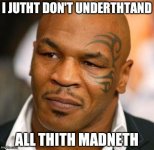couch_sloth
Member
The oldest versions of Mark ends at ch. 16, verse 8:
Mary Magdalene, Salome and Mary the mother of James go to Jesus's tomb where they are greeted by a young man dressed in white. The man tells them:
Perhaps among early Christians there was already a disagreement over whether or not Jesus's physical body was resurrected, e.g. as opposed to a more incorporeal resurrection.
So the tale of the empty tomb was added to bolster the idea of a physical resurrection. (?)
Mary Magdalene, Salome and Mary the mother of James go to Jesus's tomb where they are greeted by a young man dressed in white. The man tells them:
I wonder if the 'empty tomb story' was fairly new around the time Mark was written; and the gospel ending with "and they said nothing" was just a way of explaining to Christians why they hadn't heard about the empty tomb, until later.“Do not be alarmed. You seek Jesus of Nazareth, who was crucified. He has risen; he is not here. See the place where they laid him. But go, tell his disciples and Peter that he is going before you to Galilee. There you will see him, just as he told you.” And they went out and fled from the tomb, for trembling and astonishment had seized them, and they said nothing. (Mark 16:6-8)
Perhaps among early Christians there was already a disagreement over whether or not Jesus's physical body was resurrected, e.g. as opposed to a more incorporeal resurrection.
So the tale of the empty tomb was added to bolster the idea of a physical resurrection. (?)

